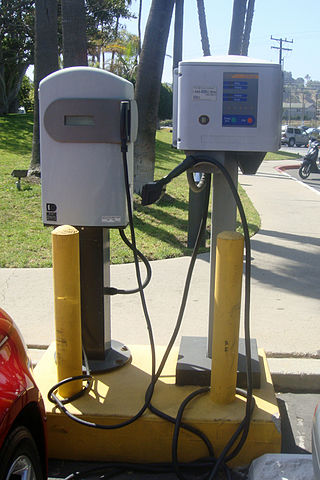With the giant federal infrastructure bill providing $7.5 billion in taxpayer funding for the buildout of a nationwide network of 500,000 electric vehicle (EV) charging stations, Oklahoma regulators are starting to consider the types of standards they will put in place to govern the operation of such facilities.
The DRIVE Act of 2021 instructed the Oklahoma Corporation Commission (OCC), which regulates energy production and utilities in the state, to develop proposed rules governing charging stations.
Government-Driven Transition
Traditional gasoline filing stations, like the vehicles they serve, evolved over many decades and were paid for by the oil companies.
By contrast, EV charging stations are the result of government-driven policy, supported by the industries that stand to benefit from the transition from gasoline and diesel to electricity to fuel the nation’s transportation sector.
The OCC is examining multiple questions it hopes to answer before charging stations are installed on a widespread basis across the state. Among those questions are: What types of chargers will be allowed, standard or fast chargers? Where ought public charging stations be located? How frequently will charging stations be inspected and/or calibrated to ensure they are operating safely and correctly? Will new transmission lines and power generating sources have to be built, and if so, where and, for the generating source, what type? What types of fees should state agencies collect for overseeing compliance with the new standards for charging stations and who should pay?
A list of proposed rules is scheduled to be submitted to the OCC on February 23.
‘Physics and Economics’
The Biden administration’s goal of replacing fossil fuel powered vehicles with electric ones is foolish, says Jay Lehr, Ph.D., a senior fellow with the International Climate Science Coalition.
“For many reasons relating to physics and economics, this country can never support more than 10 percent of automobiles to run on electricity provided by local power plants,” said Lehr. “Any money spent on a federal network of charging stations is a waste of taxpayer funds.
“Electric cars will always be fun close to home, but as the folks recently stranded on a snow-closed interstate in Virginia demonstrate, it is impossible to move quickly to a recharging station when the car’s electricity supply is needed to stay warm and alive,” Lehr said.
‘Climate Industrial Complex’
Electric vehicles popular with some politicians, but not the public at large, says Dan Kish, a senior fellow at the Institute for Energy Research.
“Electric vehicles are a political creation, unlike internal combustion vehicles, which were created by consumer demand,” said Kish. “Electric utilities are trying to get their ratepayers to pick up the tab for utilities providing new demand sources for their product of electricity.
“Politicians are weighing in, lobbyists are climbing on board, and everyone has visions of getting rich quick all based on the Climate Industrial Complex which itself is driven by world bankers and corporate interests,” Kish said. “The stakeholders being left out of this gold rush are consumers, taxpayers, and citizens who are expected to pay for this boondoggle.”
Bonner R. Cohen, Ph.D., (bcohen@nationalcenter.org) is a senior fellow at the National Center for Public Policy Research and a senior policy analyst with the Committee for a Constructive Tomorrow.
